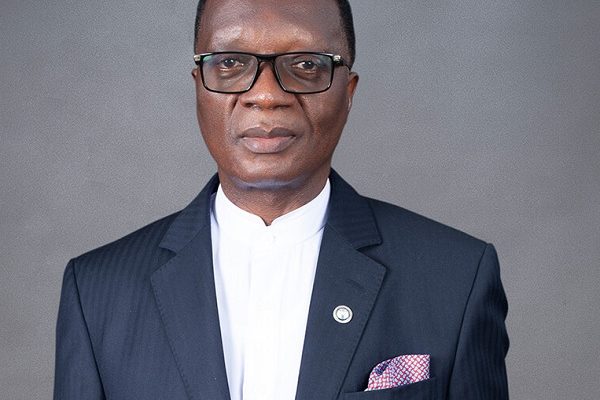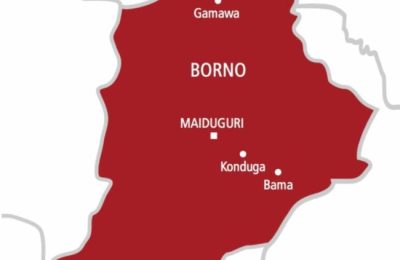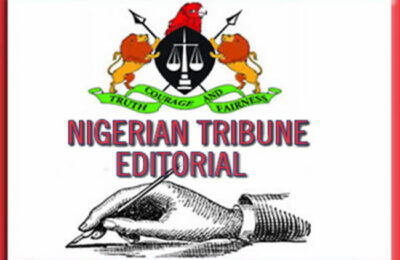African insurers and brokers in five countries have been trained on how to manage Fire Insurance and Reinsurance accounting by FBS Reinsurance and Munich Reinsurance of South Africa.
The 3-day training programme to place in Lagos from 20th-22nd May, 2024, had both physical and virtual participants drawn from Nigeria, Ghana, Ivory Coast, Liberia and Gambia.
Mr. Fola Daniel, Chief Executive Officer of FBS Reinsurance while speaking on the training said it was aimed at addressing technical knowledge gaps in the insurance industry.

He stressed that a good number of underwriters presently rely on software applications to do their underwriting and that experienced driven underwriting is fast fading away.
Mr. Daniel informed that in an era of artificial intelligence, there is virtually no subject that cannot be interrogated and an answer attained, but insurance practitioners still need experience as there are aspects of insurance that artificial intelligence cannot do for them.
“For instance, in marketing, people need to see your face; you need to talk about the company profile. You can do that in prints, but it creates a better impression when they meet you, speak with you and ask questions which answers cannot be obtained from the publications on your website.
“So, the purpose of this training, having recognised the knowledge gaps, in the Nigerian and other African market, is to bridge the technical knowledge gaps, thus, impacting the much-needed knowledge,” Mr. Daniel stated.

Speaking on the expectations from the training, he expressed optimism that participants would be better informed, noting that though the training did not cover every facet of technical insurance, it focused on fire insurance, consequential loss and a bit of reinsurance accounting.
On impacts of economic headwinds on insurance pricing, Mr. Daniel said going by the currency devaluation, most sum-insured have become grossly inadequate.
“If you bought a vehicle for N80 million last year and you continue to insure it, maybe it depreciated by 25 percent, and you insured for N60 million at renewal, it makes book sense, but insurance is about indemnity, placing you in the position you occupied before the loss. So, with the current price at N200 million, the depreciated value of N65 million will not confer indemnity, as a result of the combined force of inflation and currency devaluation.
He submitted that “In the event of a loss, the insured may not be able to replace the car at the current selling price. This is one of the effects of the devaluation. We relate that to vehicle, what of building? As at this time last year, a bag of cement was N5000 by April last year. In April this year, cement was sold for N12,000. So, if you valued your property, looking at the factors of construction – cement, labour and others, at N10 million. A N10 million indemnity today will not build a house. So, there is a need to upscale the values in line with inflationary trends to be able to receive a realistic indemnity.”
Chief Executive Officer of FBS Reinsurance submitted that insurance companies need to charge a good premium to provide appropriate covers, stressing that policyholders insure because they hold assets at risk and utilize insurance medium to offload their risks to insurers for payment of small amount of money, and have the rest of mind, knowing that if the loss occurs, insurance companies would provide succour.
He submitted that the preservation tendencies among the insuring public or corporate world is higher when there are inflationary trends, stating that it makes good economic sense to preserve what is available and free resources for other needs.
Delving on regulators and local content in insurance contracts, he said: “I don’t know the mind of the regulator, but I do know that insurance regulators do not complain, but rather set standards, rules, guidelines, and in the event of noncompliance, applies appropriate sanctions to correct or deter anomalies. I also believe that insurance operators are respecter of rules, therefore law abiding. Let’s look at the system, how do you take your risks abroad? You are expected within the law to satisfy the available local capacity, prior to ceding risks overseas, following approvals by the regulator.
“If ABC company reinsure their business abroad using foreign exchange, they cannot go to Central bank to access foreign exchange without showing evidence of regulatory approval, evidenced by a letter of attestation.”
“Meanwhile, the local content act states that every insurable interest must be domiciled here to the extent of 70 percent. That 70 percent is not a straight line, because if you are insuring helicopter, under the local content Act and the helicopter is worth $1 million, 100 percent capacity of it can be obtained in Nigeria. So the 70 percent prescribed by law is the minimum. If the insurable interest falls within the capacity of Nigerian insurers, the 100 percent must be domiciled here. It is when there are big risks beyond the capacity of the market, for instance, oil and gas where you have multi-billion dollars that it is taken abroad.
“So, I think the law is being revised because when you talk about 70 percent; the question is 70 percent of what? You can only talk of 70 percent of what you knew. But If the sum insured were to be N50 billion, do we have capacity to absolve 70 percent locally?. The answer is no. So, my guess is that the regulator will adopt a case-by-case evaluation of the risks to determine the local capacity.”
Addressing the menace of rate cutting, and efforts being made to curb it, Mr. Daniel said what the reinsurers have done locally and even at international levels was to rate risks based on loss experience and fix a benchmark rate that would enable a commensurate premium for various risks.
“The reinsurers do not control what insurance companies do. In fact, they can underwrite a risk for free, but what reinsurers are saying generally, is that, if for this class of business, the rate is less than the minimum, you cannot cede it to the treaty. You can take it for your net account, thus self-reinsuring.
“The real strength of an insurance company is the reinsurance backing it has. So, if you do not have reinsurance backing, you would be wise, to curtail the level of your acceptances to reside within your risk tolerance levels.”
According to him, in Nigeria, the Professional Reinsurance Association (PRAN) took keen interests in the rating of risks, to curtail rates abuse, and these measures are yielding positive results in driving rates and pricing sanity.
He said the minimum rate prescription is not static, because a risk can be volatile in the past, but as a result of improvement measures introduced by the insurance companies or the owner of the business, the risk can improve.
Mr. Daniel explained: “For instance, in a housing estate where you have had one or two fire outbreaks, and the insurer advises the residents to introduce sprinkler system, which would reduce the risk of fire damage and its consequences. If an insured introduces risk reduction measure, instead of classifying the risk under A, it can be B. Because they have introduced measures to reduce the risks, the premium can also come down. The evaluation to ascertain appropriate rates/premiums is dynamic. It is subject to periodic reviews”.
ALSO READ: Workers’ welfare: Ibadan poly staff unions demand Oyo govt’s immediate action







